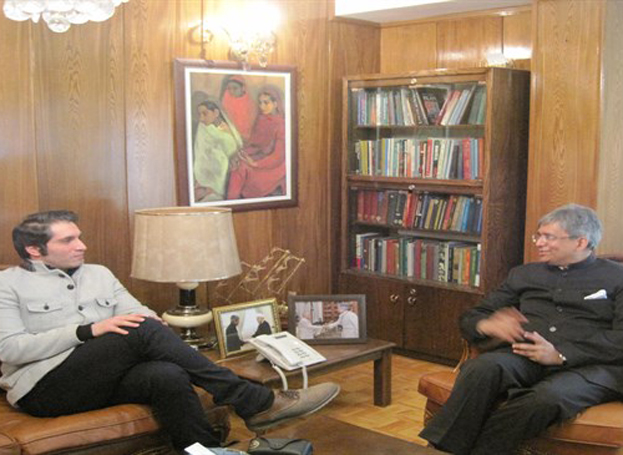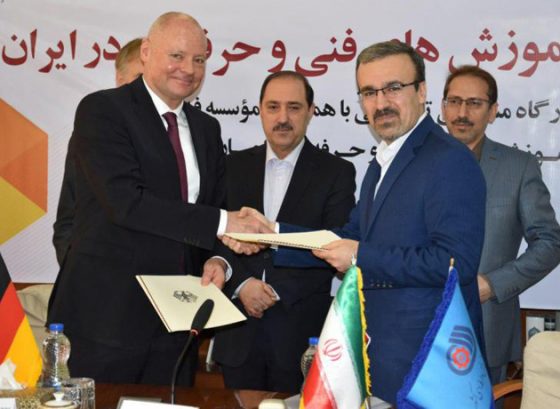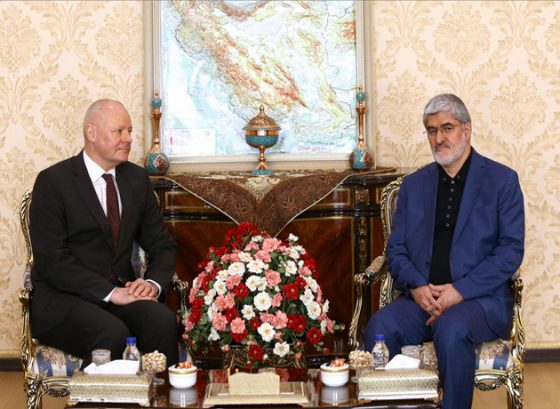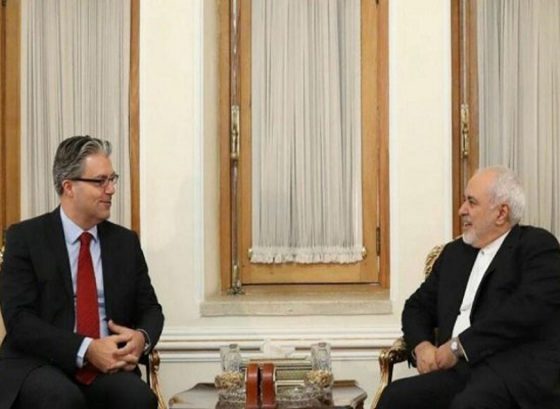Indian ambassador hails improved Iran trade in post-JCPOA era

There has been tremendous improvement in trade and economic ties between Iran and India following the implementation of the Joint Comprehensive Plan of Action (JCPOA) and removal of Iran’s sanctions last year, said the Indian ambassador to Iran, AVA Diplomatic reports.
Politically, the two countries have always maintained a good relationship, said Saurabh Kumar, speaking in an exclusive interview with Iran Daily on the sidelines of a ceremony to celebrate the 67th anniversary of the ‘Republic Day of India’ in the Iranian capital of Tehran on Thursday.
“It has always been India’s consistent policy to recognize only international sanctions as far as trade and economy are concerned. The Indian government does not recognize embargoes imposed by, for instance, countries A and B against countries C and D.”
Prior to the lifting of the sanctions, all states were faced with banking restrictions in trade with Iran, he said, adding, even doing normal trade with Iran had become very difficult.
“However, after the implementation of the JCPOA, the two states’ mutual trade figures have improved markedly. Currently, India is purchasing more crude from Iran.”
The Indian ambassador said since his interview with Iran Daily last year, his country’s relations with Iran have moved in a positive direction.
“We have had a number of very important visits. Indian Prime Minister Narendra Modi visited Iran in May, during which some very important decisions were taken. The two sides are currently in the process of pursuing the implementation of these decisions. They are related to the development of Chabahar Port, connectivity issues as well as expansion of cooperation in hydrocarbon sector, areas of science and technology and culture.”
Following that visit, Iran’s Minister of Roads and Urban Development Abbas Akhoundi traveled to India in September, 2016, Kumar recalled.
“Prior to the Indian prime minister’s visit, the country’s Foreign Minister Sushma Swaraj and Petroleum Minister Dharmendra Pradhan traveled to Iran separately.
“Also Indian Minister of State for External Affairs Mubashir Javed Akbar came to Iran and held very good discussions here. In addition, Ali Shamkhani, the secretary of Iran’s Supreme National Security Council, paid a visit to India to discuss a mechanism between the two countries’ security councils, security issues, and regional challenges as well as common concerns.”
During the Indian prime minister’s visit, India, Iran and Afghanistan signed a trilateral transit agreement to turn Chabahar into a hub for trade and transit with Afghanistan, he said.
“All three countries look forward to the extension of this initiative to the Central Asian states, with Chabahar as the hub. India and Afghanistan have ratified this agreement and are waiting for Iran to approve it. It would come into force immediately after Iran’s ratification.”
He stressed that the initiative, which is in the interest of all the three states, would greatly contribute to the further development and growth of Chabahar as a hub of regional connectivity.
“In addition, a number of Indian companies are interested in investing in ammonia and urea production in the Chabahar zone. There is another Indian firm which is interested in setting up an aluminum smelter plant there because the electricity costs in Iran are very reasonable while turning alumina into aluminum consumes a lot of electricity. We are looking at the possibility of generating more traffic for Chabahar Port.”
Kumar said during the Indian prime minister’s visit, India’s IRCON Company signed an agreement with Iran’s Construction & Development of Transportation Infrastructures Company to build a 500-km railroad from Chabahar Port to Zahedan (Sistan-Baluchestan Province) at the cost of $1.6 billion as part of the transit corridor to Afghanistan.
Commenting on India’s oil payments to Iran, the Indian ambassador noted that those payments have been sorted out and fresh payments are being made in euros.
On the problem faced by Iranian banks to establish branches in India, he said the Central Bank of India has asked the Iranian banks to provide certain information so that their applications could be processed.
“We are waiting for this information to be provided by the Iranian banks.”
Expounding on India’s Republic Day, Kumar said this is a very important day for the Indian people.
“January 26, 1950, is the day on which the Constitution of India came into effect. This Constitution, of course, has been the basis for all the progress the country has made. It is the basic law of the country. It is very important for us to celebrate the day to remind ourselves of the country’s founding fathers and, of course, the people who drafted the Constitution.
“The governance of India takes place on the basis of the basic law provided in this document.”




